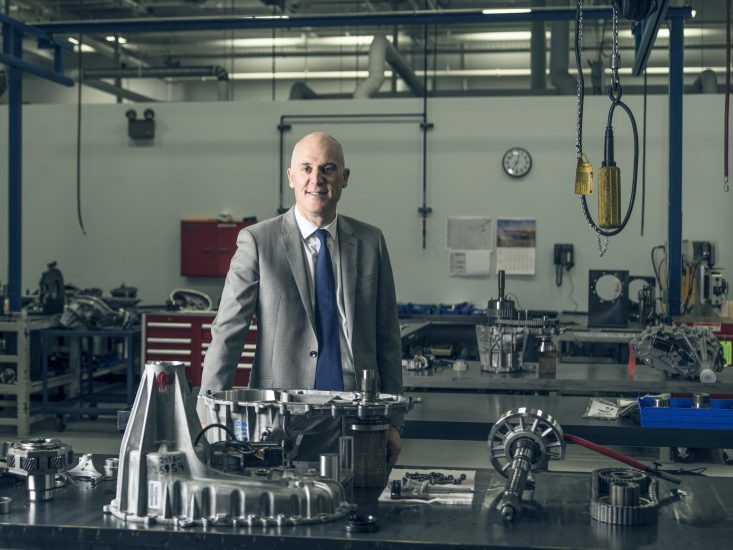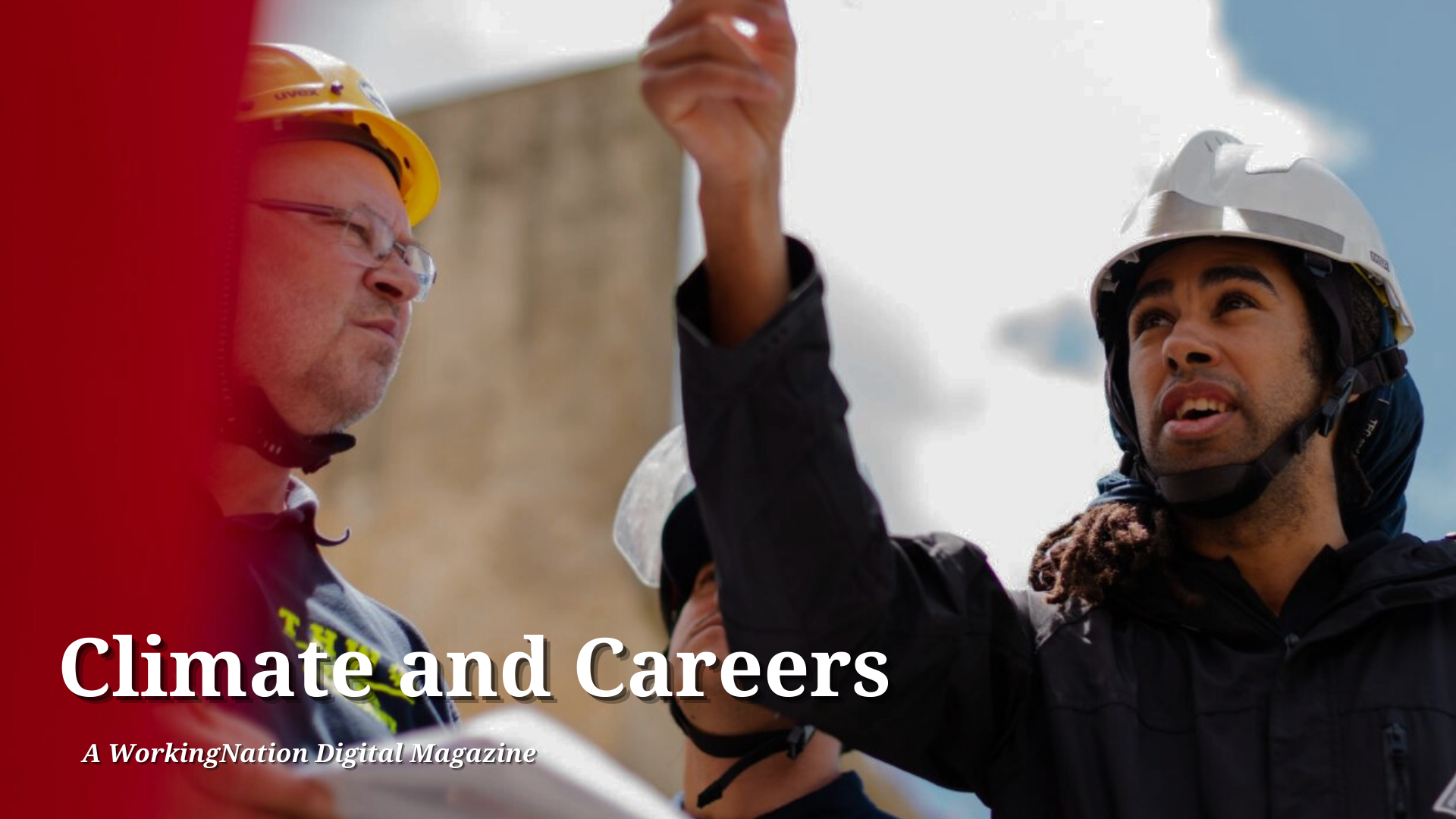Simply put: there is a talent shortage in the auto industry, resulting in plentiful job openings but few skilled workers to work them.
“The automotive industry is undergoing a time of unparalleled technical advancements,” according to BorgWarner CEO James Verrier, who tells me that “the common challenge across the entire industry is attracting and retaining new and experienced engineers and technicians.”
There is a lot of change going on in the business. Automakers are putting more emphasis on developing technologies that lower their carbon footprint and make their vehicles more connected, even autonomous.
How bad is the talent crisis? Unemployment in the auto sector is already low. In Michigan, where BorgWarner is headquartered, it was 3.9 percent in August, down a full percentage point from last year. Businesses say the workers that are still available don’t have the high-tech skills needed to fill the greener jobs. According to one industry study, there was just one qualified worker for every six openings in the auto supply chain.
BorgWarner plays a key role in that supply chain, whether the final vehicle is powered by electricity, gas, or a combination of both. The company has embraced the development of more efficient, cleaner technologies, but has found it difficult to identify enough engineers up to the task. “We are most in demand of software, controls, and power electronics engineers,” according to Verrier.
The company, which has 16 locations in the U.S. and over 60 total facilities globally, provides the powertrain for all three American auto companies. It also makes transmissions, clutches, and components for four-wheel drive systems. It’s a $9 billion business employing more than 27,000 people worldwide.
RELATED STORY: America’s top CEOs weigh in on closing the skills gap
So how do you reinvent the autoworker? The state of Michigan plays a big role. Verrier tells me its partnership with The Michigan Alliance for Greater Mobility Advancement (MAGMA) is crucial to the future of the industry. Formed in 2009, the organization is the link between the industry and engineering schools, making sure training programs provide the cutting-edge skills companies, including BorgWarner, need to fill those vacant jobs.
“MAGMA has been able to leverage over $4.3 million to support training in advanced energy storage, hybrid electric battery engineering and vehicle electrification. In response to the industry’s requirements, education and training institutions support MAGMA by developing learning opportunities that are targeted, innovative, flexible and have a strong focus on hands-on practical experience. MAGMA-endorsed or supported courses trained over 800 individuals from 2009-2012.”
BorgWarner also counts the University of Michigan among its direct partners working to ensure there is a continuous pipeline of highly-skilled workers. What students are learning in engineering classes at UMich’s Tauber Institute will help the company now and down the road.
“BorgWarner gives graduate students the opportunity to tackle specific business and operational challenges for BorgWarner facilities around the world. Partnering with universities that provide strong academics as well as practical applications provides BorgWarner with potential talent to help our company maintain its reputation as a technology leader,” according to Verrier.
There is also another potential source of workers to fill the high-tech jobs: the existing workforce. Verrier says BorgWarner is committed to helping upskill its current employees. Partnerships with the state and other groups play a key role here, as well.
“Michigan’s Skilled Trades Training Fund (STTF) program assists employers with funding for existing (and new) employee training. Training is customized to meet employee skill requirements and is short-term in duration, preferably less than three months with no training extending more than six months. The Talent Investment Agency (TIA) grants the funds to employers through Michigan’s workforce system, commonly known as Michigan Works!”
Verrier praises the public-private initiatives it’s a part of, saying they are important to workforce development and the company’s future success. “STTF provides training support for our employees and gives us confidence to grow in Michigan. The training support of partners like the State of Michigan’s Workforce Development Agency / Talent Investment Agency and Michigan Works! and programs like STTF will be imperative to our success in this area.”
BorgWarner’s provides learning opportunities to its employees in many forms, according to Verrier, “challenging work, overseas assignments, short-term talent exchanges, continuing education, tuition reimbursement, professional association certifications and formal onsite learning programs, to name a few. Employer-driven, flexible workforce development programs are essential tools to foster economic growth. Employees also have access to a library of more than 200 individually selected eLearning courses, with offerings in 15 languages. All of this leads to fulfilling our vision of a technology-enabled learning culture throughout BorgWarner.” It’s good for the employee, company, and the industry.
Arming future generations with the skills they need for good-paying jobs is an issue that Verrier is passionate about. “The future workforce demands are daunting. By 2025 when the Baby Boomer generation shifts into retirement, an estimated 2 million manufacturing jobs will go unfilled across the country. Improving industry engagement with educators, career counselors, parents and students is imperative to developing a skilled and talented labor force to support economic growth in the United States.”
Public education at all levels is the key to success. Verrier and BorgWarner believe there needs to be an increase in the number and types of STEM programs in the K-12 system now. The company supports passage of the Career Technical Education (CTE) Excellence and Equity Act, a Senate bill calling for changes to the country’s high school curriculum to ensure students learn skills more relevant to the 21st-century workforce.
According to the bill’s bipartisan sponsors, Senators Tim Kaine (D-VA), Rob Portman (R-OH), Tammy Baldwin (D-WI), Shelley Moore Capito (R-WV), and Todd Young (R-IN), CTE would provide federal funding to support innovative approaches to redesigning the high school experience for students as schools develop curriculum, assess student performance and teach workplace skills through job shadowing, internships and apprenticeships.
“Short-term solutions are necessary to help resolve the immediate talent needs in the globally-competitive marketplace,” says Verrier, “Longer term, it is important to facilitate meaningful public-private initiatives and invest in public policies that foster workforce development to address existing and future talent gaps.” A view shared by many in the auto industry.
Join the Conversation: Tell us your ideas for re-skilling auto workers on our Facebook page.
Connect with Ramona via Twitter or her website. You can read her previous articles for WorkingNation at this link.











